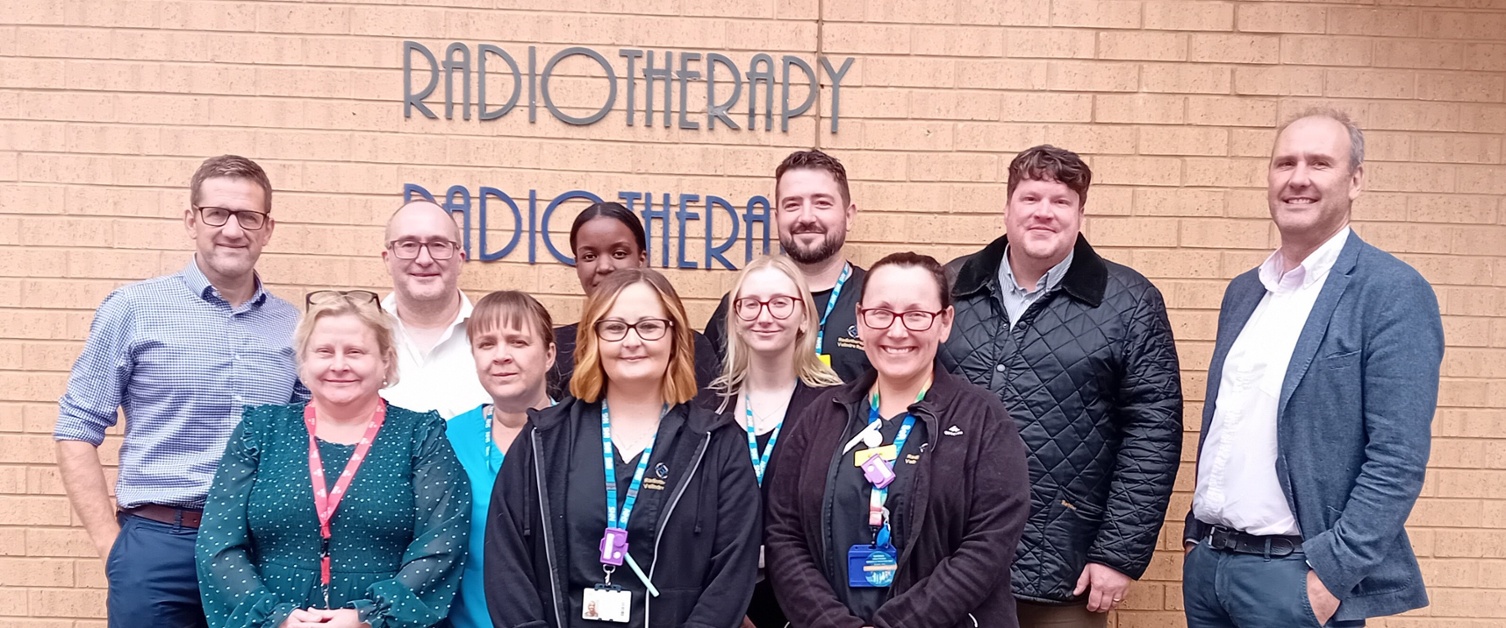
First Welsh patient benefits from proton beam therapy clinical trial
15 November
A Velindre Cancer Centre patient has become the first patient from Wales to take part in a clinical trial investigating proton beam therapy for a brain tumour.
Led by researchers at the University of Leeds, the APPROACH trial is investigating proton beam therapy for people with a brain tumour called oligodendroglioma. The trial will look at the difference in side effects between proton beam therapy and standard radiotherapy.
Patients with this type of brain tumour typically undergo surgery to remove as much of the tumour as possible. The next step is often radiotherapy, followed by chemotherapy.
Bethan Thomas, who took part in the trial, said: “Being part of the trial meant even if I was randomised to receive radiotherapy, I would be closely monitored with regular visits with the consultant and regular scans for five years.
“Proton beam therapy isn’t widely available to everybody, and it certainly isn’t available in Wales so to have the potential to take part in the trial and have the best treatment, it was a bit of a no brainer for me!”
Standard brain radiotherapy for oligodendroglioma can cause long-term side effects that may develop years after treatment. These can include memory problems and difficulty processing information, both of which can impact on the patient’s quality of life.
Proton beam therapy is an advanced type of radiotherapy that uses a beam of highly charged proton particles to target the tumour and delivers smaller doses of radiotherapy to the healthy brain.
In the trial, patients are randomised into two groups – one group receiving standard radiotherapy and chemotherapy, the other group receiving proton beam therapy and chemotherapy. Researchers will compare the two groups, assessing side effects, quality of life and survival rates.
Dr James Powell, co-investigator on the APPROACH trial, said: “We will measure whether proton beam therapy reduces side effects and improves the quality of life for patients. To assess long-term side effects, we will monitor all patients for five years after their treatment.
“This is an exciting new treatment option for patients on the clinical trial and we hope this will lead to advancements in care for people with this specific type of brain tumour.”
APPROACH is funded by the National Institute for Health and Care Research (NIHR) and Medical Research Council (MRC) partnership.
Read more about the trial and Bethan’s experience.
